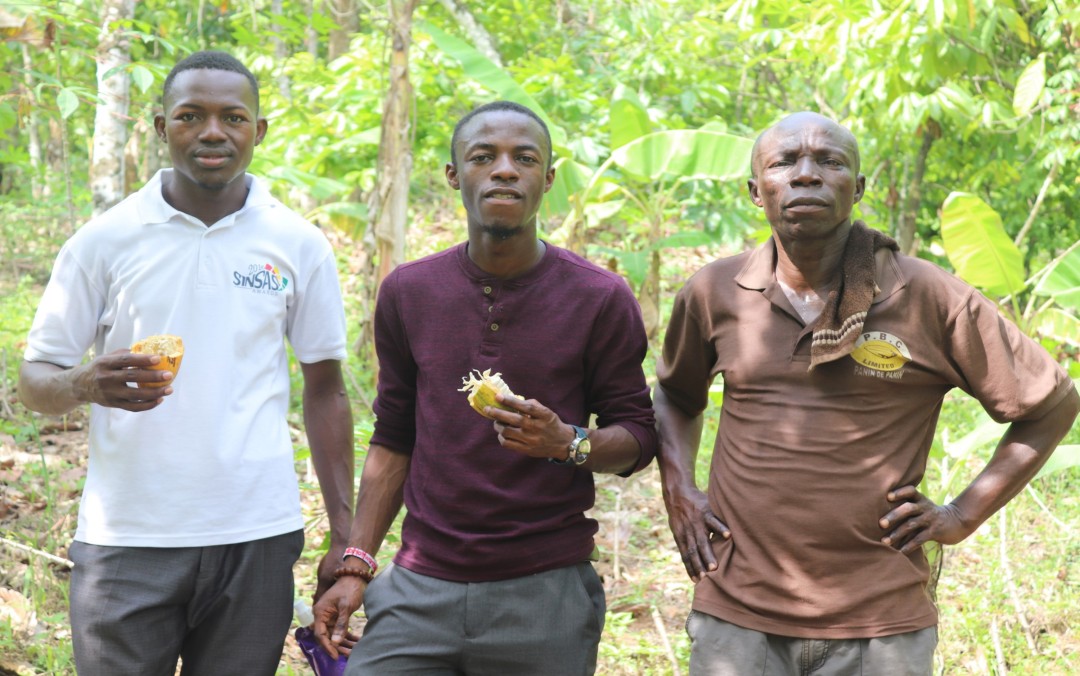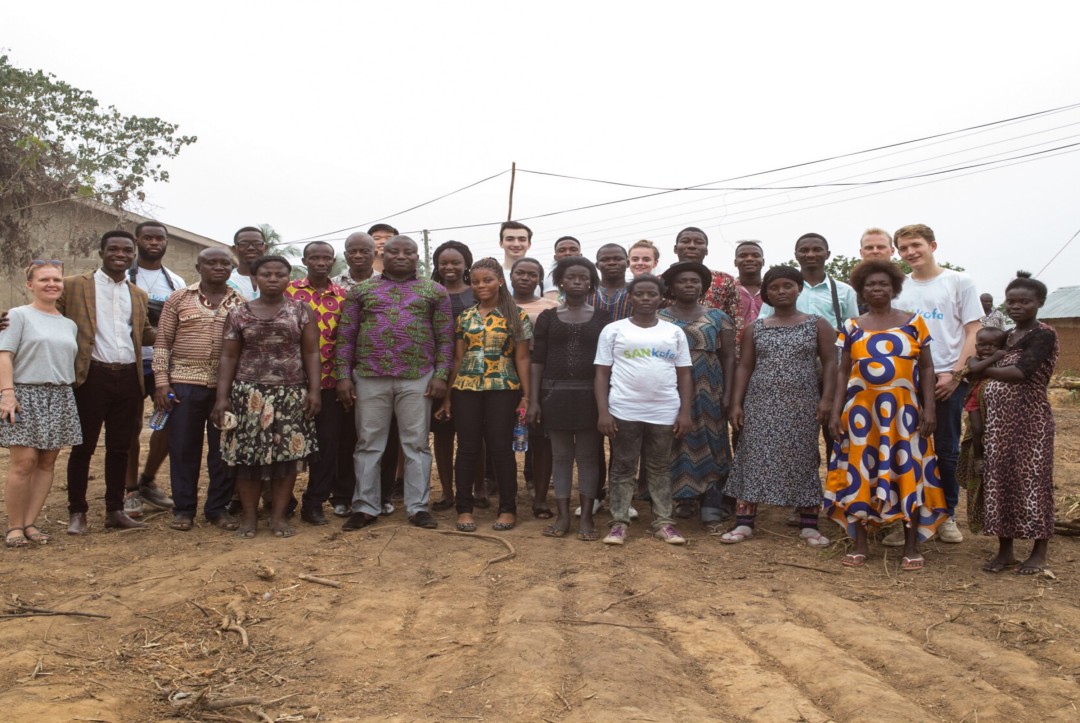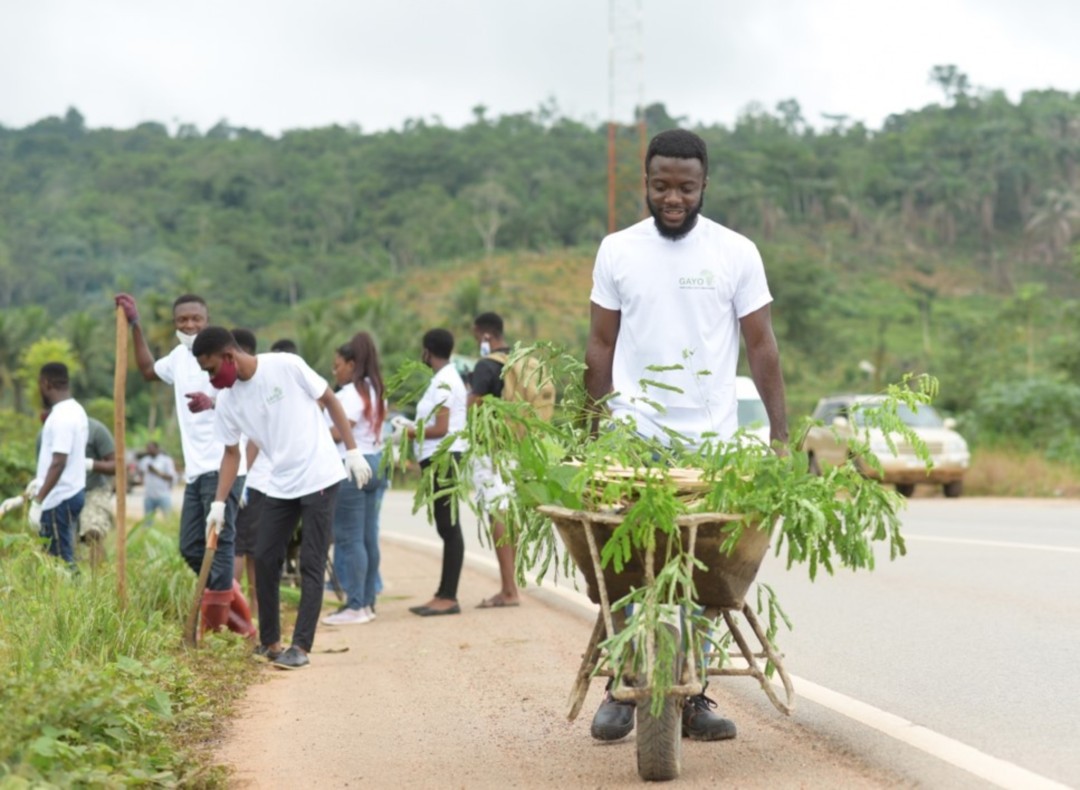Waste management in peri-urban settings
The project led by Green Africa Youth Organisation (GAYO) aimed to support the peri-urban community from Abuakwa (21,000 inhabitant) to establish a community-driven and incentive – based circular waste management model. A proper waste management structure was developed and implemented through education and stakeholder engagement, increasing the waste collection capacity and income of 63 informal waste workers (waste collectors and tricycle operators), 32 of whom are women, living below the national poverty line. A Material Recovery Facility (MRF) was established in the first quarter of 2022 with the approval of local leaders to train and empower local entrepreneurs. The management of the MFR was handed over to the local government office and the waste workers, creating decent long-term jobs through community-based enterprise models, producing compost, charcoal briquettes, and providing urban gardening services. Recycling and upcycling practices were introduced as alternative livelihoods and an approach towards community-based plastic waste management, empowering 23 unemployed youths and increasing their income through the sales of the recycled products. 1000 trees were planted at various locations within the community. Waste segregation is now an accepted community practice and open burning of waste, understood as polluting, has been reduced significantly. The community leadership has enacted laws against open disposal of waste and open burning of waste. An additional positive outcome includes the reduction in the amount of household waste.
GAYO is a registered Community Based Organisation in Ghana dedicated to environmental sustainability and community development.
News
Three new projects approved in September 2020
28 September 2020
The Addax and Oryx Foundation granted funding for three new projects at its September Board meeting.Three projects completed
29 August 2022
Three projects, in the Democratic Republic of Congo, Ghana and Zambia have successfully come to an end.Type
Health / Education / Environment / Community DevelopmentDuration
January 2021 - July 2022Location
Abuakwa / GhanaWith whom
Green Africa Youth Organisation (GAYO)
Website







Ghana
Population
28.8 million (2017)
Per Capita Income
USD 1'880/year (2017)
Poverty rate *
23% (2017)
Literacy rate
71% (2016)
Human Development Index
140th out of 189 countries (2018)
Renowned for its stability and democratic governance Ghana has made great progress over the past 20 years in reducing poverty and hunger among its population. Its economy is growing ahead of the average for the Africa region. This is reflected in gradual improvements in the efficiency of public institutions. Although primary school enrolment has reached 100 %, secondary school enrolment lags at 60% for male students and 47% for female students. Health care varies widely across the country with huge inequalities between the north and south of the country and between urban centres, generally well served, and rural areas often with no health care at all. Similarly, water supply and sanitation still face a number of challenges, mainly due to neglect until the 1990s.
Sources: World Food Program, UNICEF, World Bank, 2016 Human Development Report, Human Development Indices and Indicators (2018 Statistical Update)
*The percentage of the population living below the national poverty line.